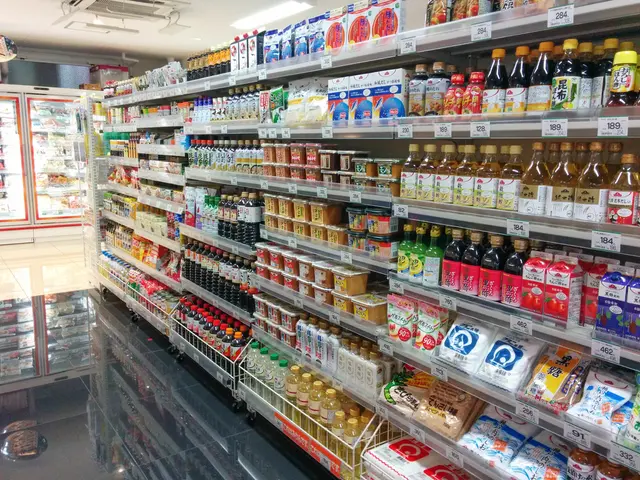Metaverse Shops: Top 10 Retail Outlets in the Virtual World
In the realm of commerce, a new concept is gathering momentum: the Metaverse Retail. This digitally encapsulated universe, born from the fusion of the physical and virtual worlds, is poised to revolutionize consumer interaction and leave a significant mark on the retail industry.
The Metaverse has the potential to fundamentally alter the way individuals shop. By enabling consumers to engage with products in 3D, virtually trying them on, and even personalizing them, the shopping experience becomes more engaging and tailored to the consumer's unique preferences.
Technology is set to play a pivotal role in shaping the Metaverse. Retailers will need to invest in emerging technologies such as Virtual Reality (VR), Augmented Reality (AR), and Artificial Intelligence (AI) to offer seamless and immersive shopping experiences. Developing innovative business models will also be crucial to capitalize on the opportunities presented by this digital landscape.
The evolution of retail within the Metaverse can be broken down into three key phases:
- A gradual transition from physical to virtual retail space, as more retailers adopt the concept.
- The integration of AR and VR technologies to provide immersive shopping experiences that surpass the limits of the physical world.
- The emergence of unique retail experiences built around digital commerce, allowing consumers to interact and engage in ways never before possible.
Some brands at the forefront of this digital revolution include Nike, Gucci, Forever 21, Vans, Burberry, Coca-Cola, Hyundai, Louis Vuitton, Adidas, and Samsung. By leveraging platforms like Roblox and Decentraland, these companies have created digital spaces where consumers can explore, browse, and make purchases.
The shift from physical to virtual retail space has been primarily driven by the burgeoning popularity of VR and AR technologies. These advancements have enabled retailers to extend consumer engagement beyond the confines of the physical world, delivering an experience that combines the convenience of e-commerce with the tactile delight of physical shopping.
In terms of consumer engagement, AR and VR technologies allow companies to create immersive brand experiences, enhancing customer interactions through AI-powered chatbots, personalized recommendations, and social networking features. Vitally, these interactions help forge stronger bonds between brands and consumers, increasing retention and fostering loyalty.
Monetization in the Metaverse revolves around the selling of virtual goods and services, with brands leveraging unique and desirable items to tap into the demand for personalized and immersive experiences. Selling virtual real estate, hosting events, and creating NFTs are also innovative revenue streams that hold significant potential.
Emerging as a new frontier for retail, the Metaverse poses its fair share of challenges. Technical and adoption hurdles plague the development of this digital universe, including the high cost of hardware and software in its infancy. Additionally, concerns surround data protection and security, especially in the realm of blockchain technology.
Despite these obstacles, the Metaverse proffers vast growth potential and innovative trends for the retail industry. As technology continues to advance, retail giants such as Amazon and Walmart are poised to make their mark in this digital environment. Brands keen on success in this evolving landscape must stay abreast of current trends and adapt their business strategies accordingly.
To overcome the technical challenges of the Metaverse, infrastructural developments are underway, including improvements in immersive hardware devices, network speed, and service providers. As these advancements continue to materialize, the Metaverse has the potential to transform retail as we know it, providing a new space for brands to interact with consumers, break new ground, and forge deeper connections.
- The fusion of technology like Virtual Reality (VR) and Artificial Intelligence (AI) in the Metaverse Retail could revolutionize the finance sector, opening up new ways for consumers to make transactions.
- As the retail industry integrates data-and-cloud-computing solutions, businesses can better analyze consumer behavior and preferences within the Metaverse, enabling more personalized product offerings.
- In the Metaverse's digitally encapsulated universe, technology giants like Samsung and brands such as Nike, Gucci, and Louis Vuitton explore the sale of gadgets and fashion items, embracing the possibilities of online retail and immersivebrand experiences.
- The evolving retail landscape, fueled by advancements in technology like the Metaverse, requires businesses to adapt their strategies and stay informed about trends in data-and-cloud-computing, artificial-intelligence, and finance, in order to thrive in the future of business and commerce.








